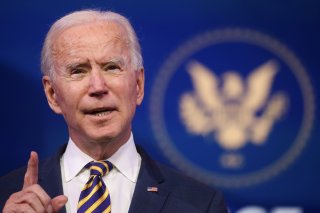Is the U.S. Economy Headed for an Inflation Crisis?
As the recent sharp run in U.S. Treasury bond yields would underline, Fed Chairman Jerome Powell now seems to be running the real risk of being perceived by markets as being behind the inflation curve.
In May 2013, Ben Bernanke provoked a so-called taper tantrum that shook world financial markets. He did so by intimating that the Federal Reserve might soon dial down its aggressive bond-buying program. That announcement sent U.S. Treasury bond yields soaring, which had reverberations in Asian and European financial markets and which caused a sharp emerging market capital flow reversal.
By being in denial about the inflationary forces now building in the U.S. economy, Fed Chairman Jerome Powell looks set to outdo Bernanke in unsettling U.S. and world financial markets. This would especially appear to be the case considering that he is in inflation denial at a time that the world is experiencing an everything asset price and credit market bubble and at a time that the emerging market economies are in very much worse shape today than they were in 2013.
There can be little doubt that Powell is in inflation denial. He seems to miss no occasion to emphasize that the Federal Reserve is not even thinking about raising interest rates or about scaling back its $120 billion a month bond-buying program.
It does not seem to bother Powell that the U.S. money supply is growing by 30 percent or that the economy now appears to be recovering at a faster than expected pace. Nor does he seem to be fazed by the risk that the Biden stimulus package, which together with the December 2020 stimulus would involve the fiscal stimulus of as much as 13 percent of GDP in 2021, could lead to economic overheating.
As the recent sharp run in U.S. Treasury bond yields would underline, Powell now seems to be running the real risk of being perceived by markets as being behind the inflation curve. Fearing that the Fed might be late in raising interest rates to contain inflation, markets have already increased the all-important ten-year U.S. Treasury bond yield from below 1 percent at the start of the year to 1.6 percent at present.
At a time that the world is experiencing an everything asset and credit market bubble, the last thing that the Fed can afford is to allow long-term U.S. Treasury bond yield to go higher than they need to go. With the everything bubble being premised on the assumption that interest rates will remain at their current ultra-low levels forever, an undue rise in U.S. Treasury bond rates must be expected to burst the bubble with possible untoward consequences for the United States and global financial markets.
Take as an example the U.S. equity market. The only justification for today’s very lofty U.S. equity valuations, which are at levels last seen on the eve of the 1929 stock market crash, is the belief that interest rates will stay indefinitely low. However, if U.S. Treasury bond yields keep rising as the U.S. recovery gains pace and as Powell continues to be perceived to be behind the inflation curve, there is every prospect that the U.S. equity bubble will burst.
Similarly, there is every prospect that any further increase in U.S. long-term bond yields will once again give rise to a sharp emerging market capital flow reversal. With these economies’ public finances now in very much worse shape after the coronavirus pandemic than they were in 2013, there is the risk that any sudden stop in capital flows could trigger a wave of emerging market debt defaults and restructurings. That could be all the more disruptive for world financial markets today than in 2013 especially considering that the emerging market economies now constitute around one-half of the global economy.
All of this is not to suggest that Jerome Powell has easy policy choices. It is never popular for the Federal Reserve to get ahead of the inflation curve and raise interest rates. However, failing to do so risks inviting a larger than necessary increase in long-term U.S. Treasury bond rates that could precipitate a hard landing for the U.S. economy and for U.S. financial markets.
Desmond Lachman is a resident fellow at the American Enterprise Institute. He was formerly a deputy director in the International Monetary Fund’s Policy Development and Review Department and the chief emerging market economic strategist at Salomon Smith Barney.
Image: Reuters


